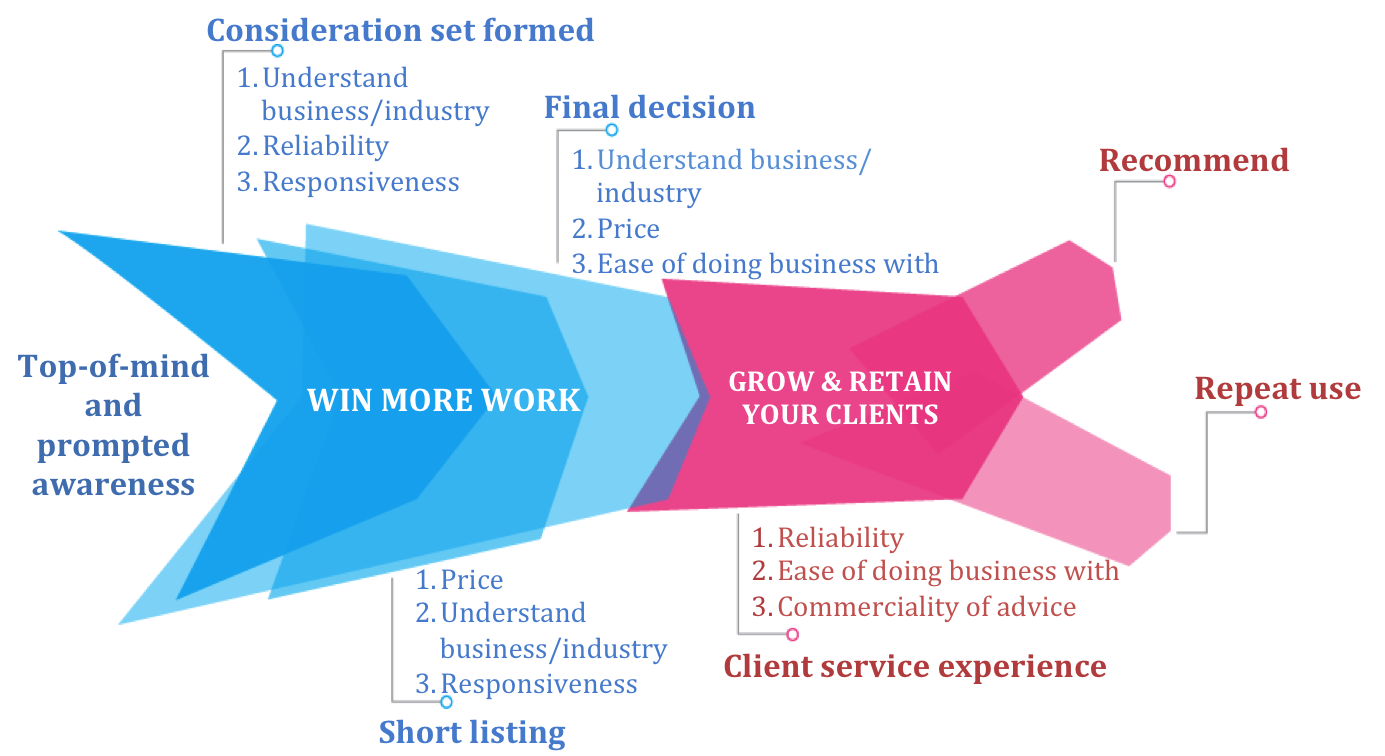Dr George Beaton

At a recent conference I was asked to sum up in one sentence the essence of successfully marketing public accounting services. Here’s what I said: “It is all about providing reasons to prefer you to any one of a dozen others in a crowded and largely homogenous market”.
“Easily said” I hear you say “But how do I do it in practice?” By using research, an often bewildering and unclear process can be broken down into manageable stages. Understanding what drives each of these stages allows you as a professional to market with your own style (the ‘art’ of marketing), and do so with confidence in what works (the ‘science’ of marketing).
Research evidence
Each year since 2003 Beaton has conducted large scale surveys of 1000s of clients of public accounting firms. Analysis of the responses convincingly shows what’s most important to clients at each stage of the engagement process – whether they consciously recognise it or not. These findings apply to all types and sizes of business from the smallest SMEs to large, listed corporations.
How to win more work
A series of steps form the basis of ‘buy’ decisions, starting with the prospect being aware of you and your services, followed by forming a list of who to consider, short-listing the candidates, and then making the final selection decision. Critically, as the chart shows, different attributes influence the client at the various stages of their buying process. Only the top three attributes at each stage are shown in the chart – satisfy these and you will have a distinct competitive advantage. The ones shown here are specific for accountancy firms.
The rub here is about being relevant to the client. Too many accountants, like lawyers and engineers, believe technical expertise is sufficient to be relevant. You’ll notice technical expertise doesn’t feature in the clients’ top 3 at any stage. In other words, technical expertise is a given – like it or not, clients believe all accountants in a particular stratum of the market are very similar in this regard to their professional abilities and qualifications.
Deep, demonstrable expertise about the client’s business and industry, on the other hand, is a key differentiator in winning work. So what does ‘understanding your business and industry’ mean in practice? One of the clients that I am currently advising asked me this question. So to show them, we undertook an exercise to delve deep into issues that their customers were facing and the possible solutions that the firm might provide. What resulted was a range of ideas that were very specific. This demonstrable granularity was proof to our client of how to be a real business and industry expert, when most of its firm’s competitors were at best making only superficial statements about industry expertise.
Not unexpectedly as the chart shows, the price of your services (i.e. the perceived competitiveness and level of your fees) is high in importance in both short-listing and the final decision to hire you – or not as the case may be. In a later post I will share what our research teaches us about how to minimise the role of price in clients’ minds when they are choosing a provider.
How to grow and retain your clients
To grow and retain your clients as the incumbent provider you need to recognise the attributes that are most important to your clients are reliability, ease of doing business with them, and the commerciality of your advice. These are also the drivers of clients’ decisions to use your services again (‘Repeat use’) and say good things about you to business associates and friends (‘Recommend’).
Put another way, our research shows why a client hires a firm is not the reason they fire the firm.
At a recent presentation I gave to a major accounting firm that was looking to reverse a slow-down in its performance, I walked through these attributes both from the perspective of their clients’ needs and from the firm’s actual performance – there was a big gap. Sitting in the audience was one of the firm’s major clients who chipped in to say that once the firm’s relevance had been established, ease of doing business was by far the most important attribute to him and ranked higher than price. His point was that his bandwidth was saturated with his managerial responsibilities and he expected his professional advisers to ease the load, not increase it – and he was willing to pay for this!
About the author
Dr George Beaton is a partner in Beaton, a firm specialising in research and advice for professional services firms in Australia and New Zealand.